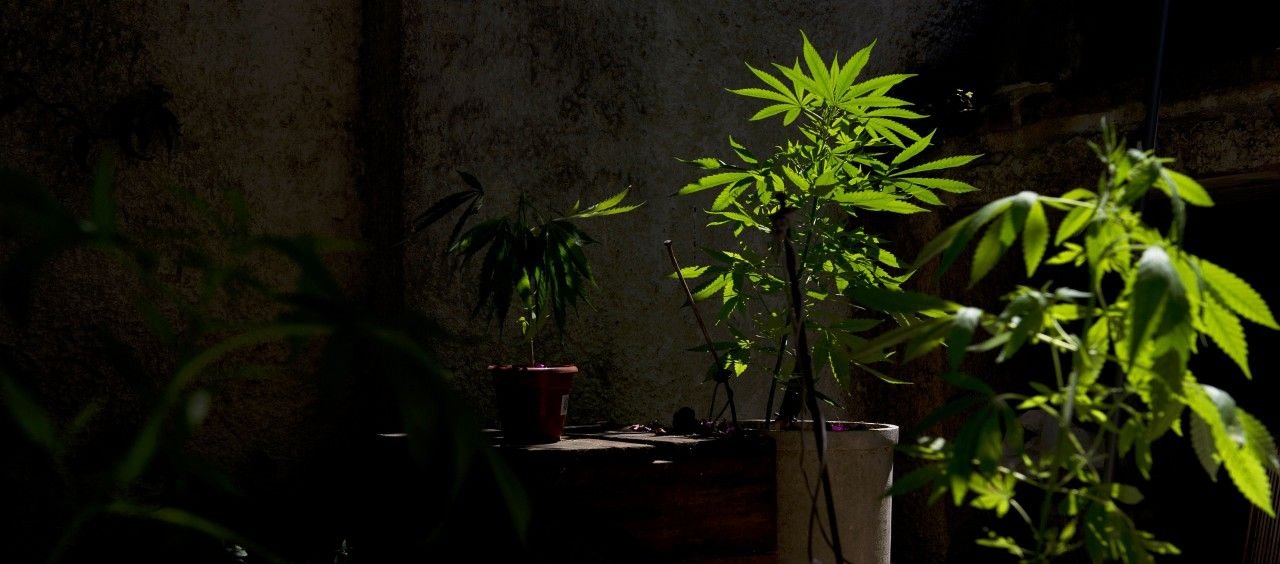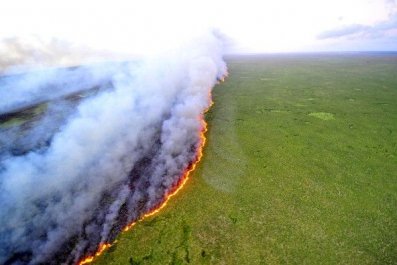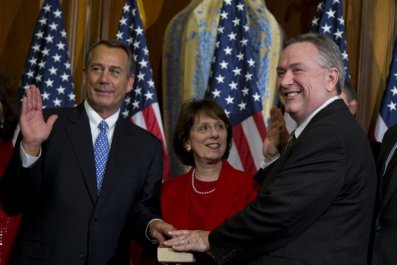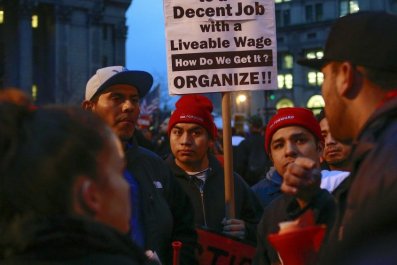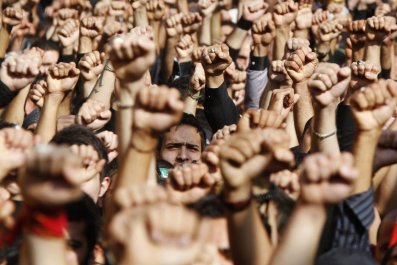Think of it as part Brave New World, with state-controlled instant gratification, and part 1984, with an omnipresent and vigilant authority. Feel free to take your happiness-inducing soma. But know that the government will be watching. Closely.
After nearly 12 hours of debate on Tuesday, Uruguay's Senate approved by a vote of 16 to 13 a bill to legalize and regulate the cultivation, production, storage, sale, distribution, and use of marijuana. It will be the first country to keep an official registry of the cannabis consumption of thousands of users.
"We will be able to get more information about the consequences of different alternatives," said Beau Kilmer, co-director of the RAND Drug Policy Research Group, who praised the initiative as historic.
Uruguayan President José Mujica is expected to sign the bill in the coming days, after which the government will have four months to negotiate additional legislation needed to implement it.
But not everyone is celebrating. "Neither our government nor the rest of the world should experiment with Uruguayans," said Alfredo Solari, an opposition senator, during the debate. "It is not ethical. I am indignant at how lightly this issue has been handled."
A broad debate over drug policy is sweeping Latin America, a region that has been convulsed by a costly and deadly drug war fueled by incessant demand, not least from the United States, for recreational narcotics.
Guatemalan President Otto Perez Molina has called for legalization and regulation of illicit drugs before the United States General Assembly. Colombian President Juan Manuel Santos has said cannabis should be legalized worldwide. Former Mexican president Vicente Fox revealed that if his country legalized marijuana production and sales, he would grow it himself.
The debate has also shifted within the U.S., where Colorado and Washington state have made it legal to smoke pot not just for medical reasons but for the sheer fun of it.
But Uruguay ignored the pleas of neighboring states with drug problems and took a giant leap. Instead of leaving individual states to liberalize the ban on marijuana sales and production, the government drafted an ambitious proposal and referred it to federal legislators for swift passage.
The new law's objectives are "to protect residents of the country from the risks implied by the link to illegal commerce" and to "attack the devastating health, social and economic consequences of the problematic use of psychoactive substances."
Under the new law, pot smokers over the age of 18 will be able to acquire marijuana three ways: growing it at home, belonging to a cannabis club, or buying it at pharmacies. Smoking weed in public will continue to be permitted, so long as it does not disturb the peace.
Citizens will be allowed to buy up to 40 grams of marijuana a month, while home growers will be limited to six cannabis plants, producing a maximum of 480 grams annually.
To put an end to the black market, official marijuana prices set by the National Committee on Drugs will be the same as illicit street sellers.
"How do you combat drug trafficking? By taking away part of the market," said Mujica in the Brazilian newspaper Zero Hora. When asked if he had ever smoked marijuana in his youth, the 78-year-old leader waved the question away. Like Nelson Mandela, Mujica spent many of his early years - much of the 1970s, during the country's dictatorship - incarcerated as a political prisoner.
The Uruguayan bill bans marketing of the drug and calls for the country's National Integrated Health System to provide counseling for cannabis users and treatment options for those who require them.
The Institute for the Regulation and Control of Cannabis, created under the proposal, will oversee the industry, ensuring that the levels of THC, the active ingredient in marijuana, remain limited to between 5 and 15 percent. (Some cannabis imported by Uruguay from neighboring Brazil contains as much as 30 percent THC.)
But opponents say the law is not necessary in a country where cannabis consumption has been legal for decades. They fear the government might use it to gather information on drug users.
The bill envisions a registration system that will keep track of who buys marijuana, how much of it, and where.
Proponents say that rather than create a Big Brother-style state, they are seeking to ensure that users act responsibly about their marijuana intake and to guarantee the means for the state to step in and provide help when they are not.
"It's a health-related objective," said Julio Calzada, secretary general of the National Committee on Drugs. Should people consume more than the designated amount, they could face "problems on the cognitive level, the relationship level, the affective level," he added.
Proceeds from taxes on the sale of marijuana will be invested in drug prevention, treatment, and social reintegration programs for cannabis users, according to Calzada.
The registration system will also keep track of demand to ensure the government does not produce a surplus, which the state fears might end up being sold in neighboring countries with stricter drug policies that would upset the delicate diplomatic and political relationships in the region.
Leaders from around the world will be watching Uruguay closely, ready to study the successes and failures of an experiment that was unthinkable even five years ago. But successful as it may be, some experts warn that it will not end, or even dent, the drug war.
"I think it would be very misleading to imagine that what works for cannabis works for cocaine," said Mark Kleiman, professor of public policy at the University of California, Los Angeles. "The risks aren't the same, the gains aren't the same. Most of the cost on the war on drugs will remain after legalizing cannabis."



